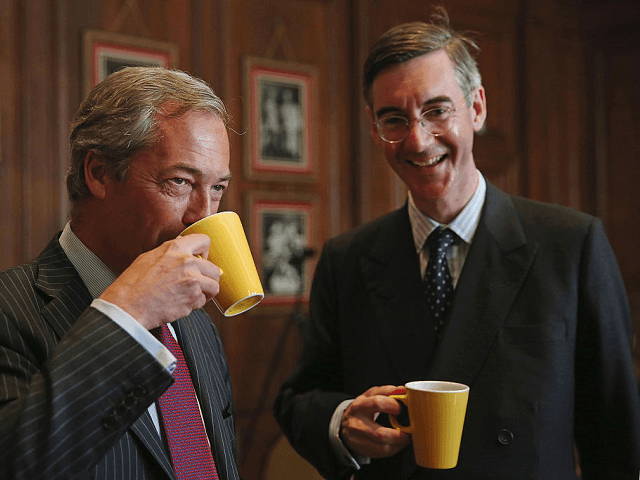The past week saw the first anniversary of the EU membership referendum — a fitting occasion to take stock following an eventful year.
Given the reasonably close result on 23rd June 2016, swiftly followed by a prime-ministerial substitution, it is understandable that Theresa May would have wanted to seek another mandate from the nation by way of a General Election; this time to answer the question whether she is the right leader to take the United Kingdom out of the European Union.
Unfortunately, the mandate awarded by the British people, albeit sufficient to keep our Prime Minister in the position she had taken over largely unopposed from David Cameron, is not as decisive as we would have hoped for. The new minority Government effectively empowers not only Her Majesty’s Opposition, but more importantly the European Union’s politicians in Brussels with whom the United Kingdom has only just begun to negotiate our exit this week.
Over the year that has passed since the referendum all the fog formed by false hopes of continental alliances resulting from Cameron’s negotiations has dispersed, hence revealing the true topography of the battlefield our negotiators are faced with. Indeed, we now have complete clarity that, as often is the case in our finest hours in history, we can only rely on ourselves.
John F. Kennedy famously remarked that “in the dark days and darker nights when England stood alone (Churchill) mobilised the English language and sent it into battle. The incandescent quality of his words illuminated the courage of his countrymen. (…) A child of the House of Commons, he became its father”.
Bombarded by the inherently Europhile media with the bad news of our allegedly ever diminishing bargaining position vis-à-vis Brussels, we naturally begin to wonder whether our Prime Minister can hold her own despite the somewhat weakened domestic foothold, or should she instead make way for a more natural wartime leader, as was the case with Neville Chamberlain and Winston Churchill.
As much as we should all rally around Theresa May at this difficult time, the speculations over her future as the Conservative Party leader and hence the Prime Minister began as soon as the General Election’s result was announced two weeks ago, with the usual names mentioned as potential successors. The question is, should a succession be necessary, whether the nation prefers a tried-and-tested politician, or wishes for a fresh approach from perhaps a backbench MP instead.
Similarly to Churchill, famously hawkish on Nazi Germany and hence at odds with Chamberlain’s government throughout the 1930s, today’s “child of the House of Commons” would most certainly hail from the backbench as opposed to being one of the established Tory heavyweights, most of whom only saw the Eurosceptic light in 2016. Being a foremost expert on our great wartime leader, Boris Johnson would surely point to Jacob Rees-Mogg as the staunchest and most consistent Eurosceptics within the Conservative Party.
A true wartime leader possesses qualities which help build consensus over political divides. It is already clear that Her Majesty’s Opposition does not intend to co-operate. Regrettably, despite numerous policy changes to suggest flexibility, it has also proved impossible for us to secure a coalition. By contrast, and despite being a traditional Tory, Rees-Mogg is highly regarded across the House of Commons to the point that he was tipped to succeed John Bercow as Speaker earlier this year.
A man of conviction and principles, his voting record shows Rees-Mogg sticking to his Christian beliefs, conservative social values and Euroscepticism. Especially with respect to the latter, he has an unparalleled following among cross-party or even non-partisan Brexiteers, reaching way beyond the Tory electorate. A great orator, he is also known for sending the most consistent signals with respect to us leaving the EU, and has yet to lose a televised debate.
Our exit from the European Union is of course all to do with economics, which also happens to be this Treasury Select Committee member’s forte. Unlike many of his colleagues, he has had a hugely successful professional life outside of politics as an accomplished financier, having built his own fund management company. As such, he is more likely to be triumphant when battling out a favourable trade deal with Brussels than a politician lacking in business and financial experience.
Critics have of course disputed Jacob Rees-Mogg’s “man of the people” credentials by bringing up his relatively privileged upbringing. If a picture is meant to be worth a thousand words, then a video must be worth a million. Hence, it is perhaps best to let the North East Somerset MP speak for himself in this recording of the Queen’s Speech Debate earlier this week.
Jacob’s contribution to the Queen’s Speech debate
Jacob’s contribution to the Queen’s Speech debate. From BBC Parliament on 21st June.
Posted by Jacob Rees-Mogg on Thursday, 22 June 2017
And so, as we take stock at the end of the year that has passed since the EU referendum, it is worth asking ourselves whether we shouldn’t increase the chances of making Brexit a success by adding true leaders and conviction politicians to the pool of potential successors to Theresa May, for the eventuality that she resigns, which of course none of us want. If you would like to help Jacob Rees-Mogg make his mind up, please sign the petition.

COMMENTS
Please let us know if you're having issues with commenting.